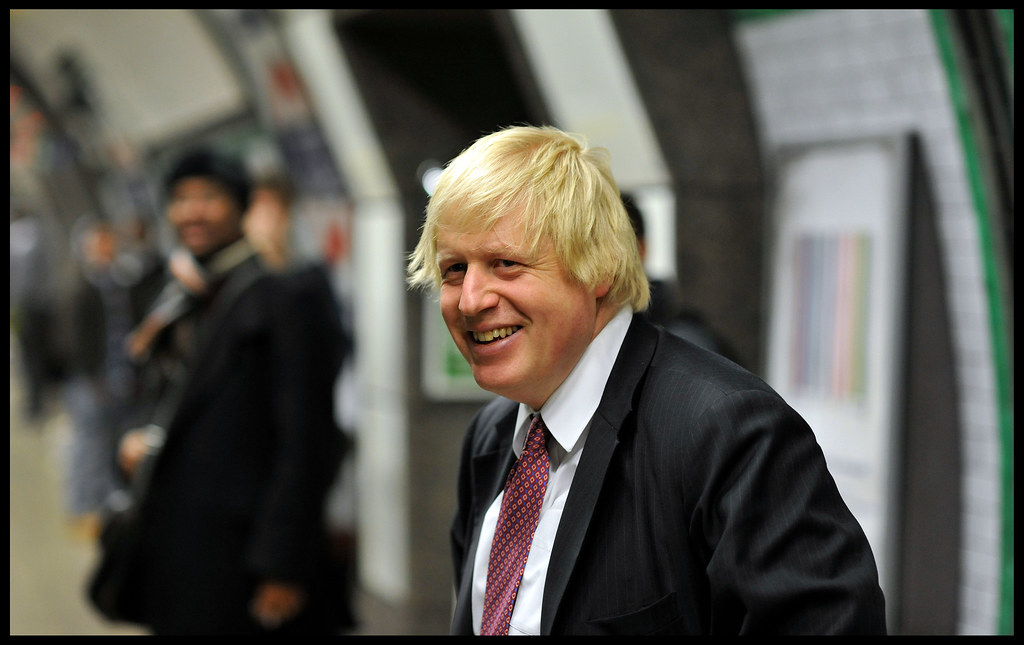Brexit Endgame: Boris and the Brexiteers Take Control
Editor’s Note: This article originally appeared on Order from Chaos.

Published by The Lawfare Institute
in Cooperation With

Editor’s Note: This article originally appeared on Order from Chaos.
The man whose childhood dream was becoming “world king” and whose charismatic leadership energized the Brexit campaign has become Britain’s new prime minister. On July 24, Boris Johnson replaced Theresa May as leader of the Conservative Party and assumed the country’s top job. Following a campaign premised on delivering Brexit “do or die” by Halloween and with only 99 days until the departure deadline, Johnson wasted no time appointing a pro-Leave cabinet. Given EU resistance to renegotiating the withdrawal agreement and a divided British Parliament, odds are increasing for a no-deal Brexit or a general election.
How did Boris become prime minister?
After three defeats of her Brexit deal and disastrous results in local and European Parliament elections, Theresa May succumbed to Conservative discontent in late May and stepped down as party leader after U.S. President Donald Trump’s state visit in early June. Ten Tory members of Parliament (MPs) stood in the leadership contest, with their parliamentary colleagues narrowing the choices to Boris Johnson and then-foreign secretary Jeremy Hunt. The 160,000 paid-up party members voted in postal ballots, with 66% selecting Johnson. This gives him a mandate from less than 0.1% of the country, with a YouGov poll showing 58% of Britons view him negatively.
Johnson wasted no time creating his own team, with an unprecedented 17 ministers leaving government following the leadership change. Four ministers pre-emptively resigned, while Johnson purged 13 others. He replaced them primarily with colleagues from the Leave campaign. Key figures in Johnson’s cabinet include:
- Sajid Javid, a Euroskeptic who formerly served as home secretary, is chancellor of the exchequer (finance minister).
- Dominic Raab, a Leave campaigner who served as May’s Brexit negotiator until he resigned over the deal he helped negotiate, is the new foreign secretary.
- Priti Patel is home secretary (interior minister), having been fired from May’s cabinet after holding secret meetings with Israeli officials.
- Ben Wallace, the cabinet’s highest-ranking Remainer, becomes defense secretary; he got the job when Hunt declined the post.
- Steve Barclay remains as Brexit secretary.
- Hardline Brexiteers and erstwhile rivals also got positions, with Jacob Rees-Mogg becoming the new leader of the House of Commons and Michael Gove overseeing no-deal preparations.
What does this mean for Brexit?
With October 31 as the current deadline for Britain to exit the EU, Johnson took office with 99 days to deliver. He faces the same challenges as his predecessor: EU leaders are unwilling to renegotiate the withdrawal agreement and the British Parliament lacks majority support for any single option. Johnson used his first statement in the House of Commons to repeat his hardline campaign pledges, calling for the removal of the Northern Ireland backstop. This is a non-starter for EU leaders, who remain united around Ireland’s desire to protect the border, and forecloses areas of possible compromise (such as reverting to Northern Ireland-only arrangements or extending the transition period). European Council President Donald Tusk set the tone in his curt congratulatory letter to Johnson, noting his readiness to discuss their cooperation “in detail.” Recognizing these challenges, Johnson also promised to scale up planning for a no-deal Brexit.
At this stage, there are three possible scenarios:
1. Deal: The most desirable outcome remains an agreement that is ratified by the British Parliament. This appears extremely unlikely given Johnson’s objectives, EU redlines, and a rapidly ticking clock (with the August holiday adding to the time crunch).
2. No Deal: The prospect of a no-deal Brexit has increased considerably under Johnson, as May was loath to pursue that option given the political and economic consequences. Johnson promised repeatedly during the leadership contest to leave the EU by October 31, with or without a deal. Thus far, the British Parliament has only agreed on two things: It doesn’t like the backstop and it doesn’t support a no-deal Brexit. Johnson could face a constitutional crisis—or a vote of no confidence—if he seeks to remove Britain from the EU without parliamentary support. Although there are questions about parliament’s legal ability to prevent this scenario, legislators took steps in early July to prevent him from suspending parliament (known as proroguing) in order to force a no-deal departure.
3. Elections: A highly likely scenario is early elections, which are currently scheduled for May 5, 2022. If Johnson pursues a no-deal Brexit, opposition parties could call a vote of no confidence. Members would have two weeks to form a new government, with one option being the establishment of a unity government that would ask the EU for another extension to enable new polls. Alternatively, Johnson could call snap elections in the hopes of improving the parliamentary arithmetic. He currently has a two-seat majority, which remains dependent on the 10 members of Northern Ireland’s hardline Democratic Unionist Party. Johnson’s cabinet, which includes numerous veterans of the 2016 Brexit referendum campaign, seems well positioned for this battle. Yet polling is not favorable to either of Britain’s main parties, with the Brexit deadlock reducing support for the Conservative and Labour parties from roughly 39% each to around 25% each. Voters are increasingly turning to parties with unambiguous positions on Brexit, particularly the Liberal Democrats (which just elected a new leader, Jo Swinson) and the Brexit Party (led by Nigel Farage). If Johnson seeks to protect his flank by running on a no-deal platform to attract hardline Brexiteers, he risks losing moderate supporters.
What does Boris mean for US-UK relations?
Relations between Washington and London soured in early July, following the leak of classified cables written by British Ambassador Kim Darroch that described the Trump administration as “clumsy and inept.” Trump released a series of tweets condemning the ambassador and criticizing May’s handling of Brexit. The Trump administration did not expel Darroch, but senior officials began excluding him from meetings. May strongly defended her ambassador, while Johnson declined to back him during leadership debates. The deep freeze in Washington and the lack of support from London’s presumptive new leader led Darroch to resign. One of Johnson’s early decisions will be appointing a successor, which could be a career diplomat or a political appointee with greater sympathy for Brexit and Trump’s worldview (including Trump favorite and Tory rival Nigel Farage).
Bilateral ties could improve in the near term, as the two leaders already enjoy good personal chemistry. Trump has long championed Johnson as prime minister, overlooking his new counterpart’s previous negative comments. They will also be like-minded on the need to deliver Brexit and reach a free trade agreement. Yet Johnson could suffer the same fate as his predecessor, who learned that attempts at good relations with Trump do not guarantee policy successes.
The leaders may disagree on foreign policy, as Johnson seeks to navigate the political and economic complexities of post-Brexit Britain. One of his first tests will be Iran, with May’s government seeking to develop in the days before her departure a European naval force to ensure safe shipping in the Strait of Hormuz after Iran seized a British-flagged tanker. Given Britain’s support for the nuclear deal and opposition to Trump’s maximum pressure campaign, her government preferred a European-led naval mission to the multi-national force proposed by Washington. Johnson will quickly face key decisions, including whether to continue the European naval effort and how to respond to Iran’s September 5 deadline for signatories to the Iran deal to counter U.S. sanctions against Tehran.
In addition, Johnson must decide whether Britain will include China’s Huawei in its 5G telecoms network. He promised during the campaign not to compromise Britain’s intelligence sharing relationship with Five Eyes partners; yet in a January 2018 interview broadcast this week, Johnson expressed support for the country’s Belt and Road initiative and described Britain as “very pro-China.”


.jpg?sfvrsn=407c2736_6)


